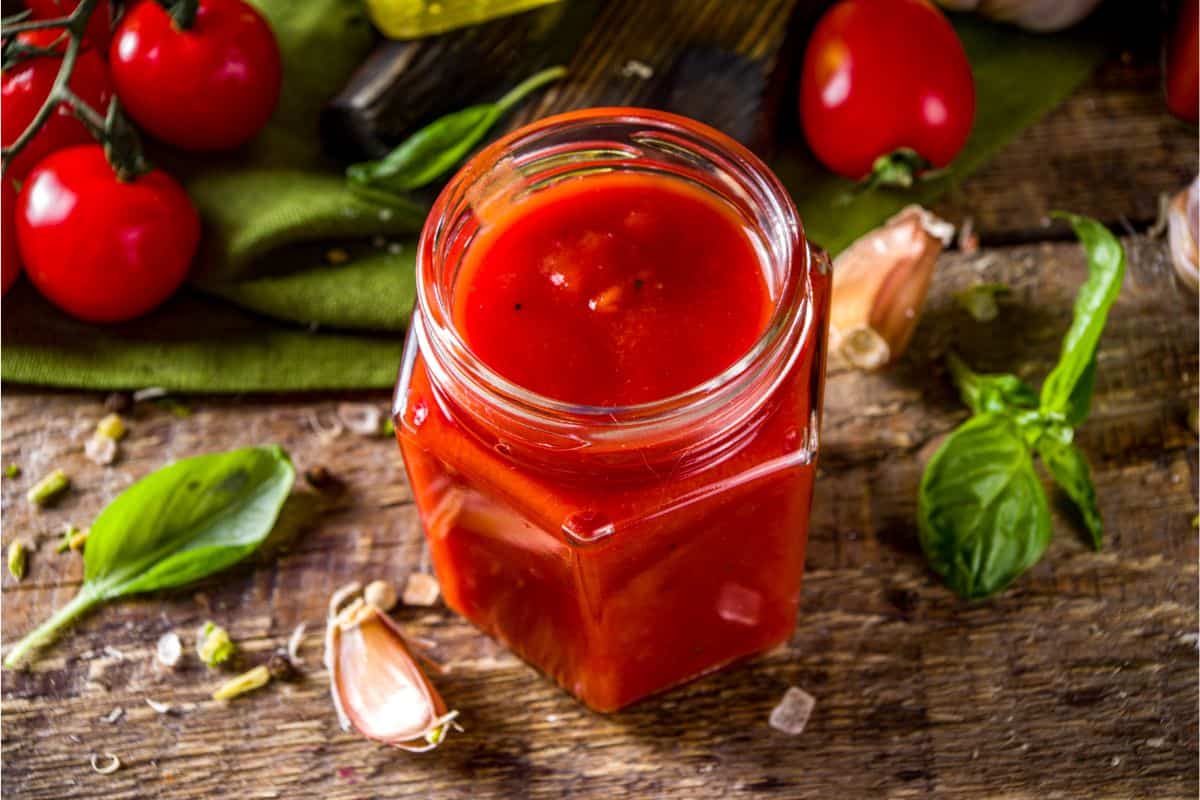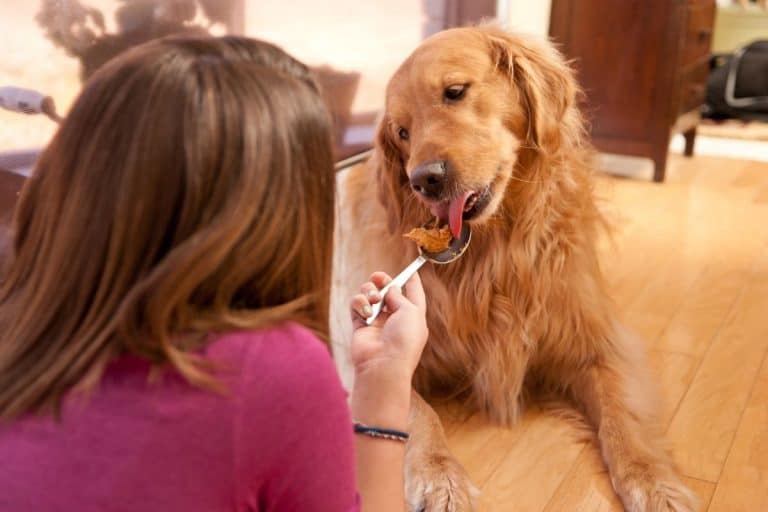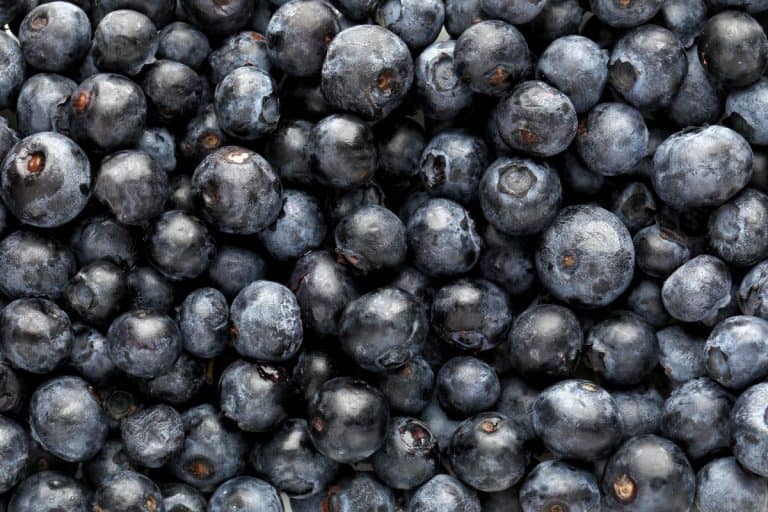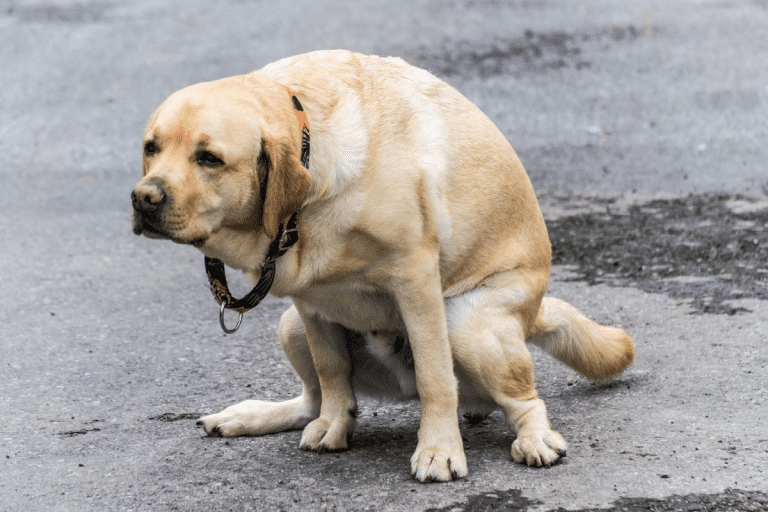Can Dogs Eat Tomato Sauce? (Ingredients To Watch Out For!)
Italian-style pasta sauce can be a great way to add variety and excitement to your dog’s dietary regime, especially when combined with beef or pork meatballs for added protein.
But are tomatoes actually safe, and what are other important ingredients to avoid when preparing the dish for your four-legged friend?
Can Dogs Eat Tomatoes?
The short answer is both yes and no.
The Negatives
As a part of the nightshade family, tomatoes can contain several chemicals that can provide digestive discomfort to your dogs. This is true of the green parts like the stems and immature tomatoes, which contain a glycoalkaloid substance known as tomatine. This can be toxic when consumed in large quantities and cause dogs to suffer from vomiting, diarrhea, and severe stomach pains.
Some dogs have also shown an allergic reaction toward tomatoes and display coughing, sneezing, hives, and difficulty breathing. However, allergic reactions like this are rare.
The stems and the leaves of tomato plants also contain a substance called solanine, which, when consumed in large quantities, can cause serious health problems.
The Positives
That being said, the red, ripe, full-bodied tomatoes at peak maturity can be greatly enjoyed by dogs and possess no negative side effects or sicknesses.
Tomatoes can be especially good sources of fiber, improving their digestive health and regularity regarding bowel movements. This is caused by the tomato skin, pulp, and crushed tomato seeds, commonly found in dog foods under the name “tomato pomace.”
While considered by some to be the waste products of the red tomato plant, any nutritional expert will tell you that those parts are the most important parts to consume, as they contain beneficial minerals and vitamins.
As well as this, tomatoes are full of lycopene, a powerful antioxidant that has been proven to fight cancer cells in both humans and animals, leading to better skin and fur health, and can lead to further longevity and maintenance of eyesight.
Tomatoes also contain beta carotene, the substance that causes the attractive red color of ripened tomatoes. Beta carotene is vital to the production of vitamin A within the body and can be beneficial for eye and skin health.
As well as vitamin A, tomatoes are also rich in vitamin C, a vital antioxidant and immune system booster. While not specifically a part of their dietary requirements, vitamin C can help prevent cancer cells from forming and improve sensitive or weakened immune systems in dogs.
Can Puppies Eat Tomatoes?
Just like older dogs can eat ripe tomatoes like cherry tomatoes and grape tomatoes, so can puppies because they are considered nontoxic in a small amount. While they don’t add much in the way of nutritional value to your puppy’s diet, you can use ripe tomatoes as a treat for them every once in a while, making sure to avoid an unripe tomato or green tomato. Also, avoid feeding tomatoes in a large quantity.
How Much Tomato Can Hurt a Dog?
There is no recommended amount of tomatoes a dog can eat daily. However, you don’t want to feed them foods like this in a large quantity, and you want to vary their diet. Again, too many tomatoes can cause stomach upset. Tomatoes are very acidic and shouldn’t be fed to a dog with a sensitive stomach.
What Are the Signs of Tomato Poisoning in Dogs?
While it is unlikely to hurt a large breed dog as long as tomatoes are given in a small amount, smaller dogs and puppies given a large quantity of tomatoes can suffer from tomatine poisoning or tomato poisoning.
Here are some signs to watch for:
- A loss of appetite
- Loss of coordination
- Lethargy
- Abdominal pain
- Diarrhea
- Vomiting
- Muscle weakness
- Hyperventilation
- Dilated pupils
- Tremors
- Seizures
Most of the time, tomatine poisoning isn’t fatal and can be treated, so the dog can fully recover. Look out for a lethargic state, drowsiness, and confusion, as well as dilated pupils and a slowed down heart rate. If your dog experiences any of these symptoms, seek medical attention as soon as possible.
If your dog has tomatine poisoning, the vet may want to induce vomiting or monitor them. Dogs with tomatine poisoning are usually given electrolytes through fluid therapy to treat dehydration and flush the toxins out faster.
Ingredients To Avoid

Of course, with many tomato-based sauces (particularly those of Italian origin), numerous herbs, spices, seasonings, and vegetables are used to give the sauce its rich and delicious taste.
While perfectly fine for most humans, dogs do not have the right digestive constitution to handle most of those kinds of ingredients.
Here is a list of ones to avoid when preparing the sauce for your dog.
Salt & Sugar
Both of these ingredients are not healthy for us in large doses, so it should be no surprise that dogs suffer the same ill effects.
Sugar in their food can lead to digestive issues, like upset stomach, vomiting, diarrhea, and stomach pains, so it should be avoided at all costs.
Sugar can also cause significant weight gain in humans and animals, which can cause a whole host of health problems down the line.
Too much salt can cause a whole host of cardiovascular problems, including heart attacks and strokes. Too much salt can lead to salt poisoning, also known as hypernatremia, manifesting as diarrhea, fever, seizures, swelling, vomiting, and weakness.
This is caused by too much salt in the blood, leading to muscles losing moisture and shriveling; as a result, bodily stiffness, shaking and jerking.
Salt poisoning can also cause neurological symptoms, including convulsions, comas, and even death if particularly severe.
Onions & Garlic
Onions and garlic, while delicious to us, pose a host of risks for a dog’s physical well-being. The main risk is that they will attack the red blood cells, which after time, can cause anemia, poor health, weakness, and even death in extreme cases.
While best avoided entirely or maintained to minuscule doses, heavy consumption can result in symptoms of toxicity, namely bad breath, drooling, nausea, vomiting, diarrhea, and physical weakness.
The treatment for these symptoms is IV treatment to rehydrate the dog and even medication, depending on the severity of the toxicity.
Some bad cases of canine anemia also require blood transfusions, which can be stressful, invasive, painful, and expensive for the owner.
Ingredients To Try (In Small Doses)
Basil
Basil can be consumed safely by dogs in small portions, but heavy consumption can result in loose stools/diarrhea, allergy effects, digestion problems such as bloating, flatulence, and stomach pains, as well as skin irritations similar to those during allergic reactions. That being said, there are several health benefits to dogs consuming basil in small, controlled doses.
Firstly, basil is another good source of antioxidants, which are good for preventing the growth of cancer cells and possessing anti-inflammatory properties, perfect for older dogs with joint issues.
Basil has also been shown to counteract oxidative stress, using beta-carotene and anthocyanins to eliminate free radicals (uncharged molecules) in the body.
Basil can also be good for heart health, with healthy oils that can lower cholesterol and magnesium, promoting better blood mobility and circulation.
There are also mental health benefits, thanks to the antioxidants, which possess a calming effect and can reduce anxiety and stress in dogs. This is done by reducing the presence of corticosterone, a chemical that causes anxiety in dogs.
Antioxidants also prevent natural cellular damage and promote a longer lifespan, thanks to their counteracting joint conditions like arthritis and heart problems associated with older dogs.
Bell Peppers
Bell peppers are once again great sources of beta carotene and vitamin C, possessing antioxidants that are beneficial for a number of natural and unnaturally occurring canine ailments.
Bell peppers are also chock full of water (almost 92%) and contain traces of carbohydrates, proteins, and healthy fats, all of which can help bolster your dog’s overall nutritional health.
The fats and carbohydrates will give your dog the energy they need, and protein benefits muscle-building. Peppers also include manganese and magnesium, both of which are essential for bone health, which is important in young and old dogs. However, there are certain health consequences for heavy consumption of bell peppers.
Firstly, dogs are carnivorous creatures, so a vegetable-heavy diet will not give them the nutritional benefits they need to thrive and be healthy.
Excessive consumption of vegetables will cause bloating, nausea, diarrhea, and vomiting in dogs and bell peppers are no different.
Spicier peppers like jalapenos should be avoided, as they could cause digestive distress, discomfort, and pain to dogs, even in small amounts.
How About Other Tomato Products?
The main issue with most tomato-based products is the added seasonings and ingredients, so caution should always be taken when serving them to your dog.
Tomato Soup
Many tomato soups contain both cream and cheese for added body and flavor, and while these may taste nice to us, they can cause digestive problems in dogs, such as bloating, sickness, diarrhea, and stomach pains.
They also contain a lot of the previously discussed seasonings and spices, most of which are not beneficial for dogs. Tomato soup works best if homemade and ingredient controlled, if only for peace of mind.
Ketchup
As well as the added seasonings and spices, ketchup also commonly features xylitol, an artificial sweetener that can cause kidney problems in dogs if heavily consumed, as well as vomiting, weakness, diarrhea, and stomach pains.
Can Dogs Eat Baked Beans in Tomato Sauce?
No. Your dog shouldn’t be eating baked beans at all. The beans aren’t toxic, but the sauce that the beans and tomatoes come in could be harmful. So, to be on the safe side as a dog owner, refrain from feeding your dog tomatoes or baked beans in a canned sauce unless you are aware of each ingredient.
Make a Soup or Dog Tomato Sauce That Is Safe
While tomato soup isn’t the best food choice for your dog, it doesn’t mean it can’t be given to them as a treat once in a while. However, you want to avoid canned tomatoes, pasta sauce, and the like because you never truly know what ingredients these products contain. To be on the safe side, try making your own at home with fresh tomatoes.
You can combine ripened tomatoes, pumpkin puree and sodium-free chicken broth together. Simmer the ingredients in a pot and then wait for the soup to cool. The pumpkin provides your dog with beneficial fiber and is a good choice if they have a backed-up digestive tract.
In addition to tomato soup, you can try chicken soup for your pup. This soup can be made with boiled chicken, carrots, celery, or whatever vegetables your dog enjoys that are safe for them to eat.
Final Thoughts
While tomato sauce can be a nice, delicious addition to your dog’s diet, it is important to always be vigilant about hidden ingredients, seasonings, and spices.
The best, healthiest results are always achieved by making your own, and this can be a nutritional, tasty treat for dog and owner alike!



